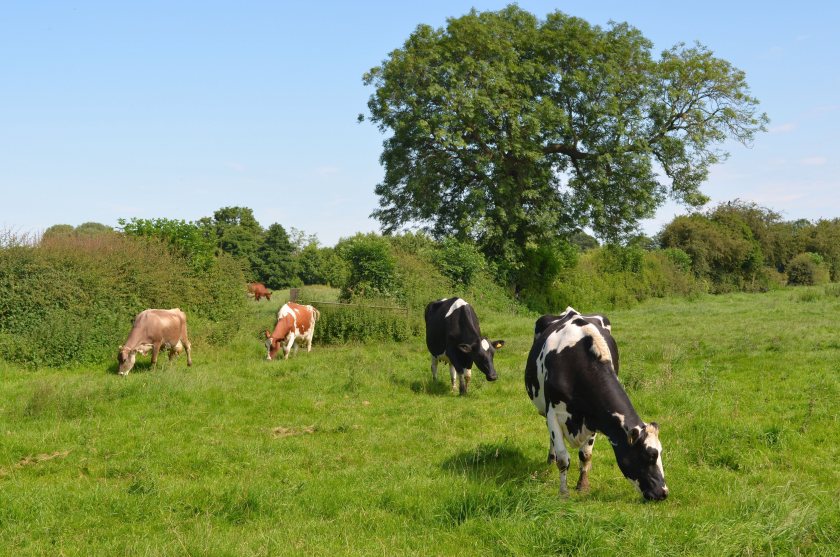Organic dairy farmers told to act fast as forage runs dry

Organic dairy farmers are being warned to act fast this autumn, as months of dry weather have left forage in desperately short supply ahead of winter — just as milk prices hit record highs.
Advisers at ForFarmers say the sector is facing a “double-edged sword”, with strong demand but limited ability to increase production.
The shortage is already being felt. Forage conserved earlier in the season is being used up, while grass growth has been minimal since early July. With organic systems so heavily reliant on grazing, the impact has been particularly severe.
Ben Trott, organic commercial manager at ForFarmers, described the situation bluntly - “it is a real double-edged sword."
He added: "The organic milk price is at a high with strong demand, with supply falling short. Organic dairy producers should be pushing for more production, but it isn’t that easy this year.”
Trott stressed that winter planning must begin with a clear picture of available forage. “It is really important organic dairy farmers do a proper forage budget, to work out what is available and plan around that."
Once those stocks are assessed, alternatives can be explored. “Forage analysis is also important as quality needs to be taken into account when making plans.”
But options are limited. Unlike conventional producers, organic farmers cannot fall back on a wide range of moist feeds or maize silage.
“There isn’t an abundance of moist feeds like on the conventional side,” Trott explained. “There are very few options which can be utilised as forage alternatives or extenders.”
Organic rules add to the pressure, with cows required to consume at least 60% of their diet as forage. “We can push up the concentrate feed rate but not in isolation from the forage,” Trott warned. While some fodder beet may be available, most organic herds will have to depend on grass and wholecrop silages.
Defra has recognised the challenge and is offering derogations allowing organic non-productive stock to be fed conventional forage. However, these are assessed case by case, and farmers must meet strict criteria for certifier approval.
Trott said the priority now is forward planning, not last-minute fixes. “The advice is to plan now for the winter ahead. Make sure you have alternatives in place now rather than waiting to get to Christmas before addressing the problem.”
He also suggested sowing root crops quickly to extend grazing. “This might be turnips or forage rape if sown quickly now.”
Despite the difficulties, the high organic milk price offers a chance to offset some of the pressure if farmers can maximise production.
But advisers at ForFarmers are clear: only those who plan carefully will be able to ride out the months ahead.








